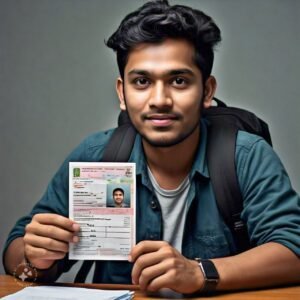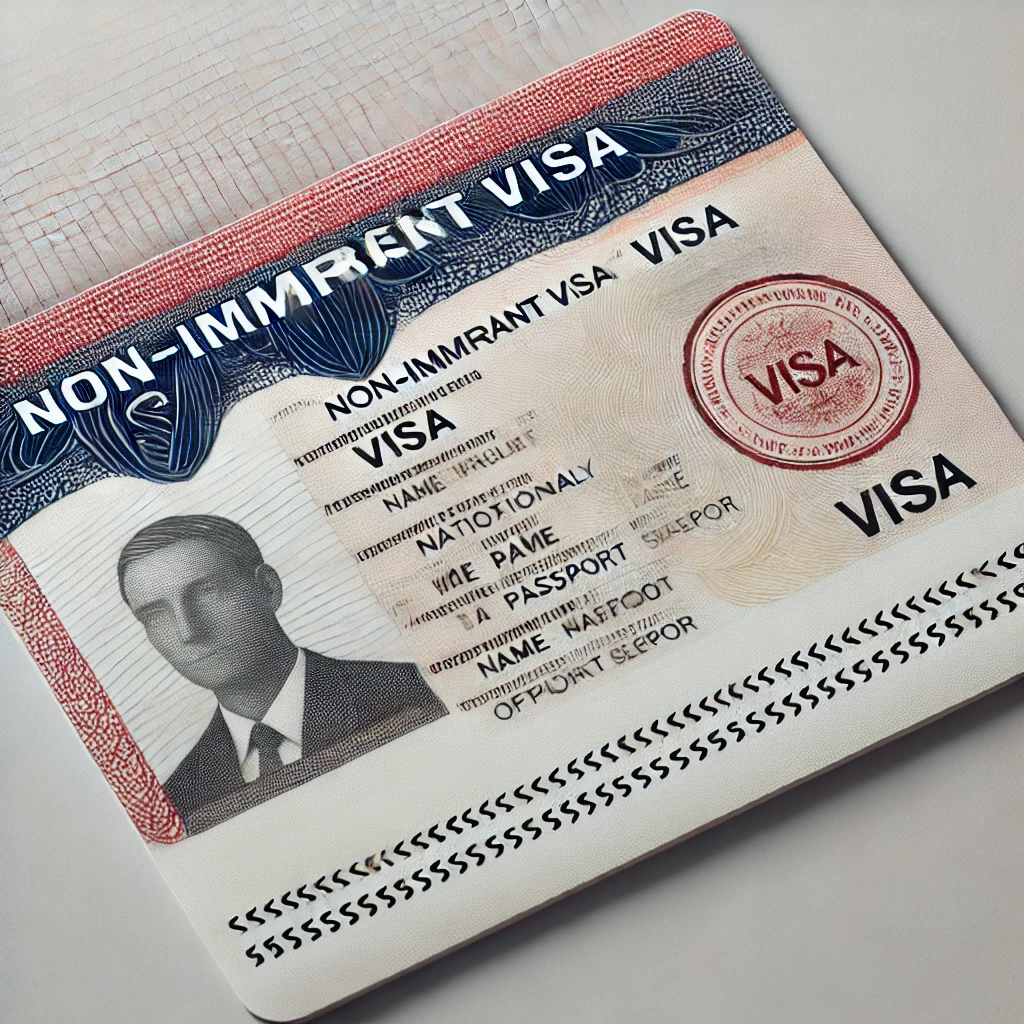Introduction
Non-immigrant visas are crucial for those seeking temporary stays in foreign countries. These visas cater to specific purposes such as tourism, business, study, work, or transit. Each type serves a distinct purpose and has its own set of requirements. Understanding these distinctions is essential for a successful application process.
Applicants must be aware of the rules governing their specific visa type. This knowledge helps avoid common pitfalls and ensures compliance with immigration laws. Non-immigrant visas do not permit permanent residence in the host country. Instead, they allow individuals to fulfill a particular purpose before returning home.
The application process involves careful preparation. Applicants need to gather required documents and complete forms accurately. The process often includes an interview at a consulate or embassy. Preparing thoroughly increases the chances of approval and reduces the likelihood of delays or denials.
Non-immigrant visas play a significant role in international travel and exchanges. They facilitate cross-border movements for various legitimate reasons. Understanding the types, requirements, and processes involved is vital for anyone planning temporary stays abroad.
read more : Immigrant Visas
Types of Non-immigrant Visas
Tourist Visas
Tourist visas are issued to individuals visiting a country for leisure or vacation. These visas allow travelers to explore new places, visit friends, or experience different cultures. Tourist visas usually have a short validity period, ranging from a few weeks to several months. They do not permit any form of employment or long-term stay. Applicants must demonstrate sufficient funds to support their stay and prove strong ties to their home country. This ensures they will return after their visit.
Business Visas
Business visas are designed for individuals who need to conduct business activities in another country. This visa allows them to attend meetings, negotiate deals, or participate in conferences. Business visas do not permit long-term employment in the host country. Applicants must provide evidence of their business activities, such as invitation letters or conference details. This visa usually has a short duration, aligning with the business activity’s timeline.
Student Visas
Student visas are for individuals pursuing education in a foreign country. These visas are essential for attending universities, colleges, or other educational institutions. Student visas are typically tied to the length of the academic program. Some countries allow limited part-time work with a student visa. Applicants must provide proof of enrollment and sufficient financial resources to cover their education and living expenses.
Work Visas
Work visas enable individuals to work in a foreign country for a specific employer. These visas are usually granted based on a job offer or contract. Work visas may be temporary, depending on the employment agreement. Applicants must demonstrate their qualifications and meet the host country’s employment criteria. These visas are critical for skilled professionals seeking opportunities abroad.
Transit Visas
Transit visas allow individuals to pass through a country while en route to another destination. These visas are usually short-term and are required if the traveler has a layover or stopover in the country. Transit visas do not permit extended stays or any other activities beyond transit. Applicants must provide proof of onward travel, such as flight tickets, to obtain this visa.

Application Process
The application process for non-immigrant visas involves several key steps. First, determine the specific visa type needed for your purpose of travel. Visit the official website of the embassy or consulate to find detailed instructions and requirements. Complete the online visa application form accurately. Ensure all fields are filled correctly to avoid delays.
Next, gather the required documentation, which usually includes a valid passport, photographs, and supporting documents. Supporting documents may vary by visa type but often include proof of financial support, travel itinerary, and purpose of visit.
Schedule an appointment for an interview at the nearest embassy or consulate. During the interview, present all required documents and answer questions truthfully. Be prepared to provide additional information if requested.
Pay the visa application fee, which varies depending on the visa type and country. Check the accepted payment methods on the embassy’s website.
After the interview, the consulate will process your application. Processing times can vary, so apply well in advance of your intended travel date. Once approved, receive your visa and verify all details before traveling.
read more : Types of University-Specific Scholarships
Required Documentation
When applying for a non-immigrant visa, you must provide several key documents. Start with a valid passport that remains valid for at least six months. Ensure your passport has enough blank pages for the visa and entry stamps.
Complete the visa application form accurately and truthfully. This form is often available online on the embassy’s website. Provide recent passport-sized photographs that meet the specific requirements of the visa.
You will need to show proof of your travel plans, such as flight itineraries or hotel reservations. This helps demonstrate the purpose and duration of your visit. For business visas, include an invitation letter from the host company or organization.
If applying for a student visa, provide an acceptance letter from the educational institution you will attend. Proof of financial support is crucial, showing you can cover your expenses while abroad.
Additionally, you may need to provide proof of ties to your home country, such as employment or property documents. This proves your intent to return after your visit. Be prepared to provide any additional documents requested by the consulate or embassy during your interview.
Visa Fees and Processing Time
Visa fees vary depending on the type of visa and the country. Typically, fees are paid when submitting the visa application. Check the embassy or consulate’s website for the exact amount and acceptable payment methods. Some countries accept payment via credit card, bank transfer, or cash.
Processing times for non-immigrant visas can vary widely. Factors affecting processing time include the type of visa and current demand. In general, processing can take from a few days to several weeks. Check the embassy’s website for estimated processing times for your specific visa type.
Delays can occur due to additional security checks or incomplete documentation. To avoid delays, ensure all required documents are submitted correctly. Apply well in advance of your intended travel date to account for any unforeseen issues.
In some cases, expedited processing may be available for an additional fee. This option speeds up the application process but is not guaranteed. Always confirm processing times and fees with the embassy or consulate where you are applying.
Common Reasons for Visa Denials
Visa denials often occur due to insufficient or incorrect documentation. Applicants must provide complete and accurate documents. Missing or incorrect information can lead to immediate denial. Ensure all forms and supporting documents are correctly filled out.
Another common reason for denial is failure to demonstrate sufficient financial resources. Applicants must show they can support themselves during their stay. This often includes bank statements, pay stubs, or financial guarantees.
Inadequate proof of ties to the home country can also result in a denial. Applicants need to show strong reasons to return home after their visit. This can include employment, property ownership, or family commitments.
Applicants may also face denials due to previous immigration violations. A history of overstaying visas or breaking immigration laws can negatively impact your application. Be honest about your past visa history and ensure compliance with all regulations.
Lastly, failing to convincingly explain the purpose of your visit can lead to a denial. Clearly outline your travel plans and objectives to the visa officer. Providing a detailed and truthful account of your visit helps strengthen your application.

Extending or Renewing Non-immigrant Visas
Extending or renewing non-immigrant visas involves several important steps. Start by checking if your visa type allows for extensions or renewals. Not all visas are eligible for extension, so verify this with the immigration authority.
Apply for an extension well before your current visa expires. This helps avoid overstaying and potential legal issues. Obtain and complete the necessary application forms from the embassy or consulate. Include all required documents, such as proof of continued financial support and the purpose of your extended stay.
For renewals, follow similar procedures as the initial application. Submit a new application form and provide updated documentation. This often includes a valid passport, photographs, and evidence of the reason for renewal.
Pay any required fees for the extension or renewal process. Fees can vary depending on the visa type and country. Check the latest fee structure on the embassy or consulate’s website.
Be prepared for possible additional processing times. Processing can take several weeks, so apply early to ensure you remain in legal status. Always follow the specific guidelines provided by the relevant immigration authorities.
